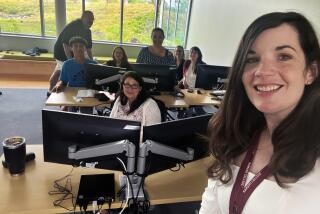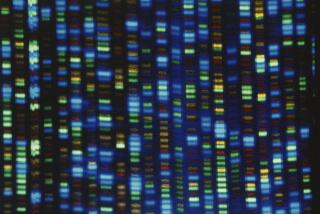Study Aims to Help Genealogy by Tracking World Gene Pools
- Share via
PROVO, Utah — Researchers hope to use DNA to link people with no recorded family history to their ancestral homelands.
Brigham Young University’s multimillion-dollar “molecular genealogy” project aims to blend traditional genealogy with cutting-edge DNA technology.
To do this, researchers at the university are taking blood samples from 100,000 volunteers. Along with those genetic fingerprints, volunteers are asked to provide a family tree stretching back at least four generations.
The program, funded by philanthropists James Sorenson and Arizona’s Ira Fulton, will take the DNA and match it with the family genealogies.
The genetic markers in DNA are passed from generation to generation, so pairing DNA data with ancestral history will let researchers create a map placing certain genes in specific places and times.
The information could help individuals with no recorded family history locate their ancestral homelands simply by taking a blood test.
“We hope this becomes the premier genetic genealogical reference database in the world,” said project director Scott Woodward, a BYU microbiologist. “What we hope to do is to reconstruct ancient gene pools. . . . Then we can go to an unknown individual and tell them what gene pool their genes came from.”
More than 4,500 individuals, many of them from BYU, have signed up to have a blood sample drawn. Other volunteers are being recruited from around the world.
The study is expected to last four years.
More to Read
Sign up for Essential California
The most important California stories and recommendations in your inbox every morning.
You may occasionally receive promotional content from the Los Angeles Times.













